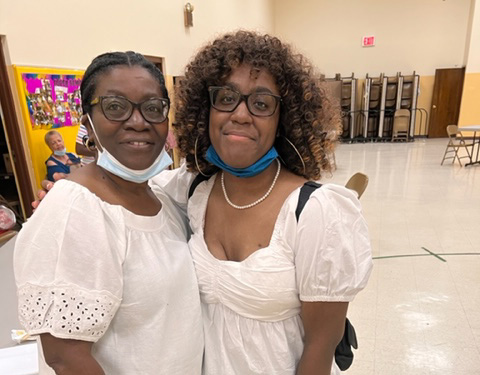
I’ve been spending time with a ten-year-old. My grandson doesn’t have many worries. He lives in a good home, has many loving relatives and a bunch of good friends. As a devoted grandparent, I envision him as a poster child for a “life is good” commercial. He enjoys just about everything and his main obstacle is finishing school reading assignments rather than breezing through more enjoyable books.
Ten. That’s three years away from the teen years when hormones kick in, peers can become more important than grandparents, and the influence of friends and culture competes with the guidance of his parents. I was recently in a Zoom meeting discussing ways to implement support systems for people of all ages. One of the participants has three teenage girls and another cutie who’s almost there. His question was, “is there a support group for parents of teenagers?”
Mentors can’t be a support group for parents, but they can be an excellent support for parents as they build a trusting relationship with their child. Here are a few keys to being a vital support for the family.
Mentors can’t be a support group for parents, but they can be an excellent support for parents as they build a trusting relationship with their child.
Let’s start with the most basic: Just show up. The last thing a kid , and their parent, need is an adult who does not fulfill a commitment. I’ve seen quotes that say things like “Showing up is 90% of the battle.” Let’s say that it brings you halfway there. But it is an essential 50%. Time is precious and there are always competing interests. Fulfilling your commitment as a mentor is a top priority.
How does this support the family? There are multiple factors involved. First, it gives the parent a break knowing that their child is spending time with a caring adult. Next, you are setting a positive example that will slowly be absorbed as a model for that child — and their family. Finally, research in mentoring shows that youth who have good mentors have better relationships in their home. A mentor’s influence is subtle but substantial.
The next key is just as crucial: Don’t judge. That means don’t judge the youth, their parents, their cultures, and just about everything else in life. “Do not judge, lest you be judged yourself,” our Lord admonished us in the Sermon on the Mount. This can be hard at times. Some mentors face situations where they know that kids and families are doing things that are counterproductive for their emotional, spiritual, and physical health. That can range from harsh and demeaning language in the home to unhealthy eating to unwise use of money and resources. The thoughts that are running through your mind at these times may be accurate, but our natural responses to correct or give advice can be counterproductive. There will come a time when your words can have impact on your mentee, but trust must be built first. That trust comes through being a consistent nonjudgmental role model.
Your patient acceptance supports the family because many mentees and parents are fed with continual streams of criticisms. Kids who struggle in school rarely get positive attention and feedback. Parents of struggling kids who live in trying circumstances don’t lack advice. Extended family, schools, friends, and host of others are ready to provide “helpful feedback.” They often need someone who will accept them for who they are at that point in time. They need encouragement. God will open the door for you to help when the time is right.
If showing up is half the battle, being nonjudgmental may add another forty percent to the equation. Let’s look at the last ten.
What tops off a good mentoring relationship is an adult who listens intently, asks good questions to learn more, and gives wise responses. Suspending judgement is a key foundation for listening because it enables you to concentrate on what is being said and how it is said rather than having your mind create a list of things that are wrong. When you listen, it is important at times to turn what they have said into questions that can help you learn more. When a mom says, “It’s been a real struggle this week,” a simple question can be “Sorry to hear that. What’s been happening?” There is a risk in this question in that the mom may have a list of things your mentee has done wrong. It’s essential to empathize, “That sounds tough,” but not make a judgement. I’ve been in that situation often with my mentee next to me. It’s uncomfortable. My main response is to compliment his mom in whatever way I can find and express my hope in their child and their work as a parent. While it has been tempting to say, “If you would only…” or “have you considered trying…” I know that is not helpful and most likely harmful at that moment. It will create a barrier between me and the mom and most likely my mentee who may react negatively to any perceived criticism of his mom. I will follow that up by asking my mentee how he felt about that interaction with his mom. He will need to be encouraged, but I will also ask questions about how he felt about his week. That may lead to helpful conversations regarding what he might be able to do to improve his relationships at home.
“The mouth of the righteous is a fountain of life.” Proverbs 10:11a
The teenage years are full of challenges for the teen and parent. For many parents, every year can bring challenges. The mentor who will consistently meet with a youth, listen to their mentee, and respond wisely and respectfully to the family will bring a “fountain of life.”
There’s a final piece that goes beyond the 100%. We know that Jesus holds the ultimate key to life. His death and resurrection will bring hope and new life to those who believe. Communicating that truth is part of our life mission as followers of Christ. Our next blog will give some clues on how to bring that message to our mentees and their families.









